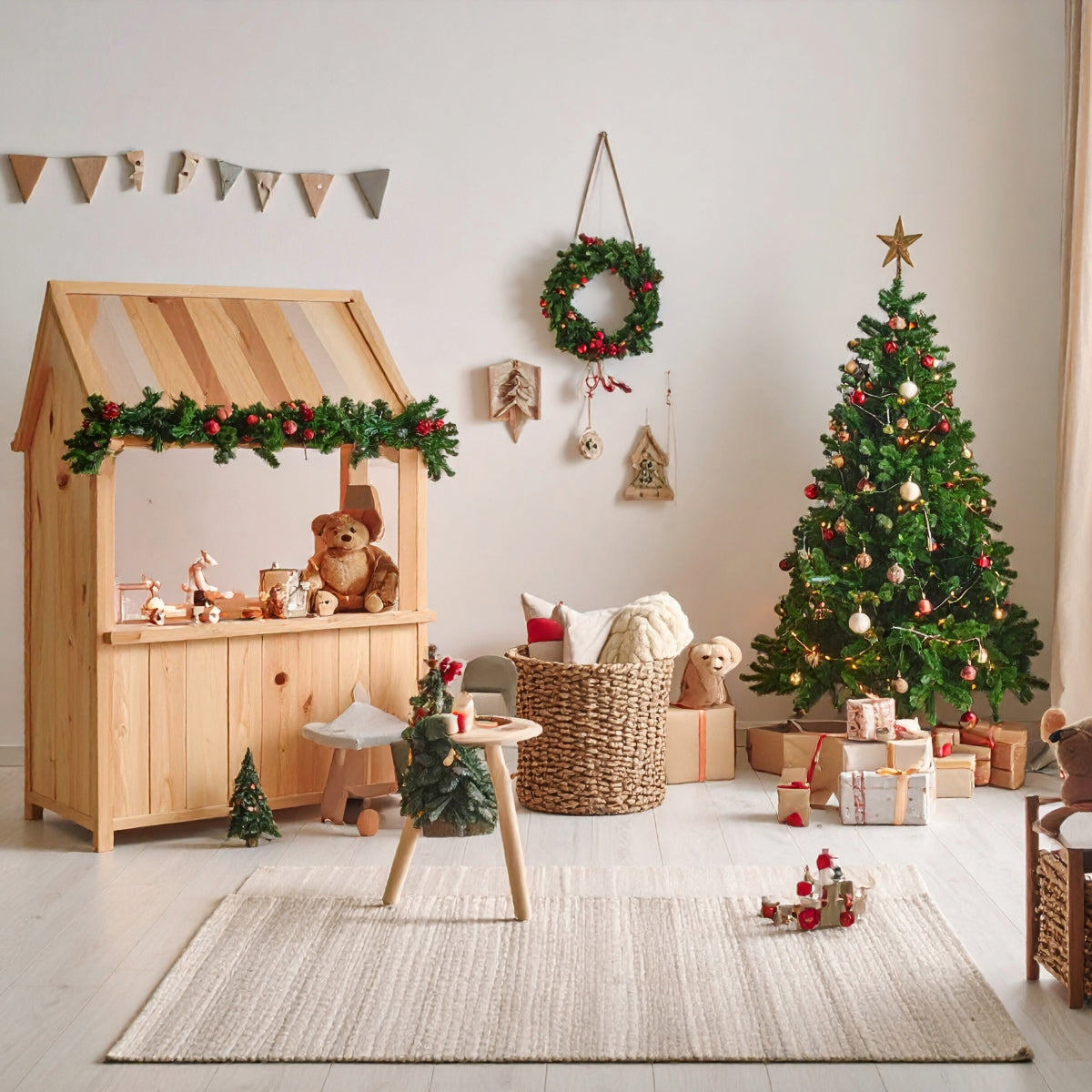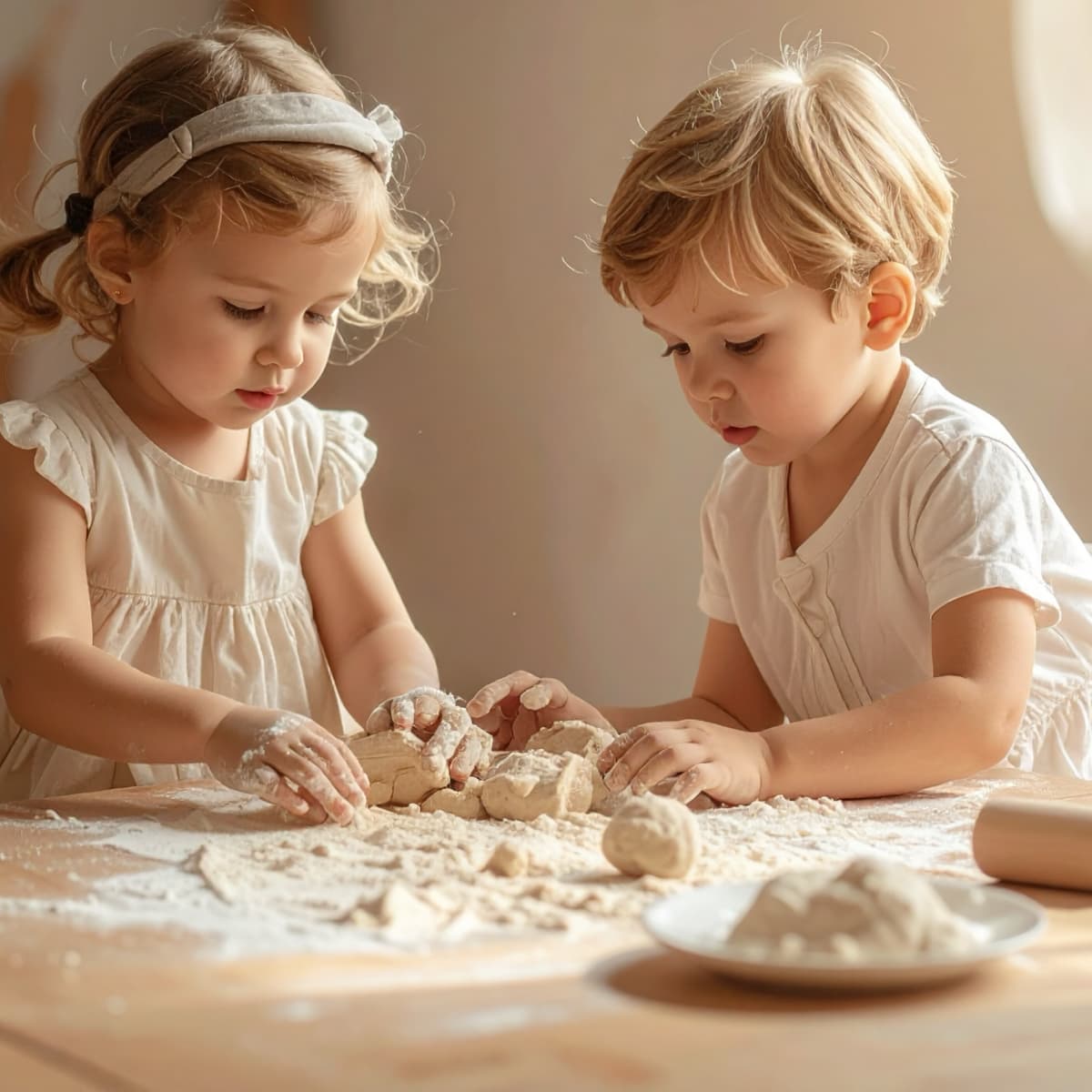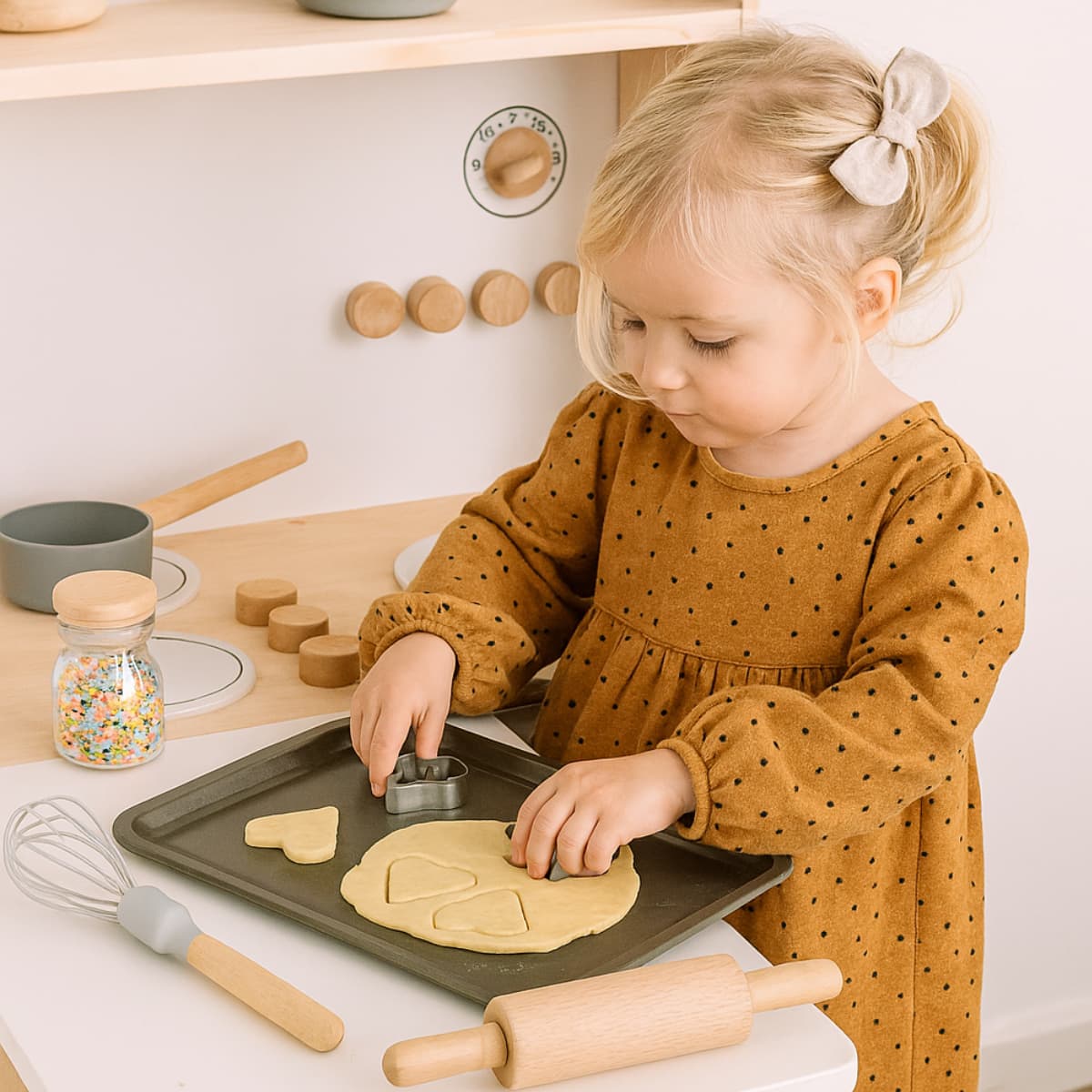Article: Beech

Beech
Beech Wood – Properties, Uses & Significance in Toy Making
Beech wood is one of the most commonly used types of wood in Europe. It stands out for its hardness, fine pore structure, and high availability – especially popular among furniture makers, toy manufacturers, and interior designers.
Origin & Distribution
-
Genus: Fagus
-
Main species: European beech (Fagus sylvatica)
-
Distribution: Central and Southern Europe, temperate zones
-
Sustainability: Widely cultivated, short transport routes
Appearance & Structure
-
Color: Pale yellow to reddish, uniform
-
Grain: Fine, sometimes slightly flamed or cloudy
-
Surface: Smooth, silky matte after finishing
-
Aging: Beech wood darkens slightly over time
Technical Properties
| Feature | Description |
|---|---|
| Hardness | High (Brinell hardness approx. 35–40 N/mm²) |
| Density | Approx. 720 kg/m³ – heavy & robust |
| Workability | Very good for staining and sanding |
| Drying | Tends to shrink – slow drying recommended |
| Durability | Suitable for indoor use, outdoor only with protection |
Applications
-
Furniture: Chairs, tables, shelves
-
Interior design: Parquet flooring, stairs, veneers
-
Children’s toys: Building blocks, plug-in games, vehicles
-
Kitchenware: Cutting boards, wooden spoons
-
Musical instruments: Pianos, resonance parts
Advantages
-
Native, sustainable wood
-
High strength and durability
-
Smooth surface – ideal for toys
-
More affordable than many other hardwoods
Disadvantages
-
Not weather-resistant without treatment
-
Increased risk of cracking if dried improperly
-
May darken slightly under sunlight
Conclusion
Beech wood is a true classic for high-quality toys, durable furniture, and finely crafted everyday items. Its strength and warm appearance make it an ideal material – especially in child-friendly environments.




